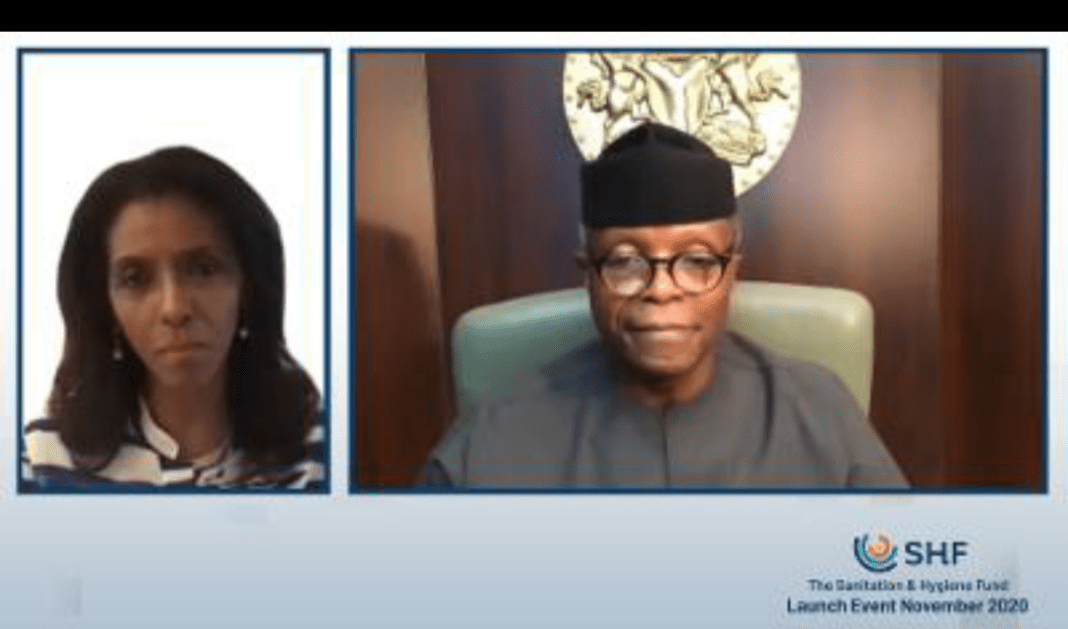NIGERIA. The Sanitation and Hygiene Fund has been launched to proffer solutions to the age-long crisis on sanitation, hygiene, and menstrual health.
The Fund is seeking $2 billion over the coming five years to support countries in bringing sanitation, hygiene, and menstrual health to all.
The fund which was launched online had in attendance United Nations Deputy Secretary-General, Amina Mohammed, Deputy Director-General of the World Health Organization, Dr. Zsuzsanna Jakab, Executive Director of the Sanitation and Hygiene Fund, Dominic O’Neill, Nigeria Vice President, Yemi Osinbajo, Executive Director of UNICEF, Henrietta Fore, Grete Faremo, Executive Director of UNOPS and was moderated by international broadcaster, Zeinab Badawi.
According to United Nations Deputy Secretary-General, Amina Mohammed, the Sanitation and Hygiene Fund will be critical in scaling up investments to reach everyone with sanitation services.
She added that the new financial mechanism to drive billions of dollars into the sanitation sector while describing safe sanitation and hygiene as “critical to the response that we want to see, first, because it is about human dignity.”
Nigeria Vice President, Yemi Osinbajo who also participated in the launch program said that the Sanitation and Hygiene Fund will be a lifesaver to many African countries adding that he likes the fact that the fund is tied to measurable performance.
The Deputy Director-General of the World Health Organization, Dr. Zsuzsanna Jakab welcomed the Sanitation and Hygiene Fund saying that investment in sanitation and hygiene is cost-effective.
Describing the fund as an important mechanism to increase and catalyze national investment, Jakab stated that “the economic benefits of sanitation are about five times the cost, and the cost of inaction is far greater.”
The Executive Director of the Sanitation and Hygiene Fund, Dominic O’Neil said that the fund is in the struggle to end the stigma associated to poor sanitation, hygiene and menstrual health adding that it is also a fight for respect and basic human rights.
The Executive Director of UNICEF, Henrietta Fore called sanitation and hygiene “a great equalizer for children” saying that it would make an enormous difference in our world if everyone had access to sanitation and hygiene in households, schools, health facilities, and communities.
“Good sanitation has to be a public good. Governments have to own the fact that sanitation is their problem to solve, and that they have ways to solve it,” Fore stated.
The Executive Director, United Nations Office for Project Services (UNOPS), Grete Faremo stated that proper sanitation is the core of development to any community, family, or individual.”
Research has shown that the estimated cost of lack of sanitation and hygiene is $222 billion per year in lost productivity, increased health expenditures, and economic output.
Currently, half the world’s population does not have access to safely managed sanitation.
The Sanitation and Hygiene Fund provides catalytic funding to countries with the heaviest burden and the least ability to respond, focusing on four strategic objectives.
The objectives include expanding household sanitation, ensuring menstrual health and hygiene, providing sanitation and hygiene in schools and health care facilities, and supporting innovative sanitation solutions.



